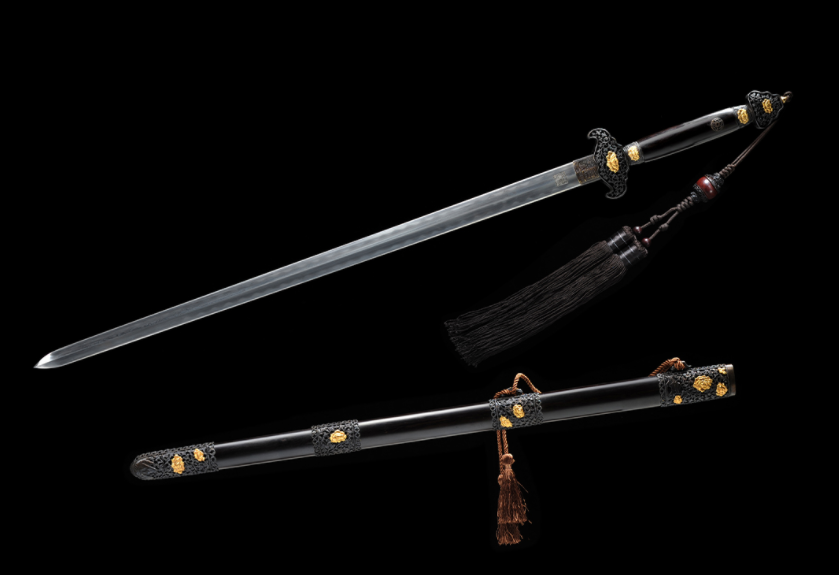A complete 剑 consists of two components - 剑身 (sword) and 剑鞘 (sheath) as shown below.

亮剑 means draw the sword, not necessarily entirely, out of the sheath. It has two purposes - to scare a person who usually does not know martial arts into surrender voluntarily or show one's desire/capability/readiness to kill/fight.
Rather than go through word by word translation, I prefer to put the true meaning to it, as the entire slogan is a speech using inference but direct to the point it wants to deliver.
监督表率 敢于亮剑 - As a model (social-political) overseer, one must not afraid of the powerful (person with higher rank) who has committed a crime or mistake. In such circumstances, one shall show them the equipped weapon (剑) and the readiness/determination (敢于) in using it (亮剑).
The weapon (剑) refers to the overseers has the backing up of the law or the instruction from the (communist) party leader, and showing (亮) it to the subjected person who is considered a criminal or wrong-doer.
This has been a famous doctrine(教條)/slogan(口號) since Mao's era. Maybe came out/born sometime during the cultural revolution, which had turned/encouraged everybody into/became an overseer/spy of others, including one's parents.
